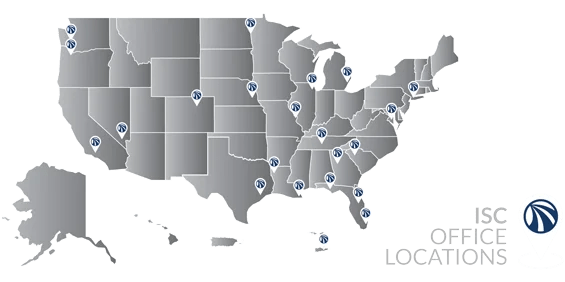Today, U.S. maritime ports and waterways handle more than 2 billion tons of domestic import/export cargo
PORTS SECURITY PROGRAM
Airports and seaports are gateways to commercial travel as well as domestic and international trade, connecting the United States to the world. Although the core functionality of a port is to transport passengers and goods, ports also serve as a primary source of revenue and jobs for a community and are an integral part of our supply chain system. We understand that how ports prepare for crisis has a direct correlation to their ability to effectively respond to disaster and crisis, and quickly recover and build resiliency for the future.
Port Security Vulnerabilities and Cascading Impacts
Since Sept. 11, 2001, much of the national focus on ports security preparedness has been on preventing potential acts of terror and the multitude of active hurricane seasons. The COVID-19 pandemic renewed focus on how to protect ports from a diversity of threats, including natural disasters and infectious disease outbreaks.
Our airport and maritime port infrastructure are an intricate system supported by waterway, road, and rail systems to create a network of inland and coastal ports. U.S. maritime ports and waterways handle more than 2 billion tons of domestic and import/export cargo and 12.7 million cruise passengers annually. U.S. airports handle more than 1 billion passengers and 22.5 million tons of domestic freight annually. Any disruption of this system will have cascading impacts to the local, regional, national, and possibly international economy as well as a multitude of sectors, critical infrastructure, and community lifelines.





and 12.7 million cruise passengers annually.
U.S, airports handle more than 1 billion passengers & 22.5 million tons of domestic freight annually.
Although the core functionally of a port is to transport passengers and goods, ports also serve as a primary source of revenue and jobs for a community.
The market economy for airport and maritime ports is expected to exceed $110 million in the coming decade.
Our Approach to Comprehensive Emergency Management Programs for Ports Security
For even the most resilient ports, the possibility of an incident occurring that impacts vital business operations is a real and constant threat. Emergency management programs for ports security is more than being able to rapidly respond to an incident. It is an ongoing process of protection/prevention, preparedness, response, recovery, and mitigation that adheres to regulatory requirements and begins well before a crisis or disaster hits.
Our approach to Port security and emergency management is comprehensive, coordinated, and integrated, and supported by a team of port engineers and emergency management specialists that deliver decades of experience. Our expertise is unmatched.
Our Port Emergency Management Services
ISC specializes in developing customized crisis and emergency plans and training and exercises that adhere to regulatory requirements and are designed specifically to each port and its critical business operations. Our preparedness expertise is supported by our experience supporting ports across the nation in responding to and recovering from major incidents and natural disasters. Our services include:
PREVENT AND PROTECT
- Threat Assessments and Reporting
- Critical Business Ops. & Services Analysis
- Sector Interdependency Assessments
- Physical Security & Vulnerability Assessments
EMERGENCY PLANNING SERVICES
- Emergency Response Planning
- Crisis Management Planning
- Port Operations Restoration Planning
- Standard Operating Procedures
- Crisis Communications Planning
- Business Continuity Planning
- Disaster Cost Recovery
TRAINING SERVICES
- Incident Command System Training
- Emergency Operations Center Training
- Liaison Training
- OSHA Training
EXERCISE SERVICES
- Exercise Design & Development
- Tabletop Exercises
- Drills & Functional Exercises
- Full-Scale Exercises
RESPONSE SUPPORT SERVICES
- EOC Incident Support Staff
- Incident Reporting
- Incident After-Action Review
- Incident Improvement Planning
RECOVERY TECHNICAL SERVICES
- Damage Assessments
- FEMA Disaster Assistance Programs
- Insurance Adjusting
- Debris Management
RESILIENCY TECHNICAL SERVICES
- Resiliency & Mitigation Planning
- Benefit-Cost Analysis
- FEMA Hazard Mitigation Technical Services
Past Performance
MIAMI INTERNATIONAL AIRPORT AND PORT MIAMI
Read More

HURRICANE LAURA
Read More


